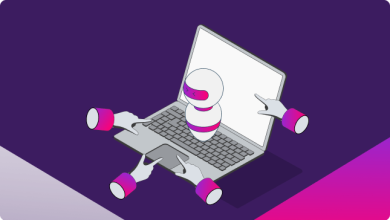7 Major Causes of Relapse After Drug Addiction Treatment

Drug addiction is a serious disease that can have devastating consequences. It can be extremely difficult to overcome drug addiction, but with proper treatment and support, many people do. However, relapse is common after drug addiction treatment. We’re going to discuss the major causes of relapse that may occur after leaving the Addiction Rehab Center. We hope that this information will help you or someone you know who is struggling with drug addiction get the help they need.
1. Isolation and Loneliness
These are one of the main causes of relapse after addiction treatment. When people leave rehab, they make up their mind not to go back to their previous drug-using social circles. However, staying isolated and lonely won’t do you good because you may be tempted to use to kill your boredom. Steven Yohay explains that the best decision is to seek non-using friends who will support your sobriety journey.
Maintaining hope during addiction treatment will fortify your recovery journey
2. Lack of Structure
In early recovery, it is important to have a lot of structure in your life. This means having regular meetings with a therapist or counselor, going to 12 step meetings, and having a job or other constructive activity to keep you busy. If you don’t have a structure in your life, you are much more likely to relapse. Some other things you can do to establish structure in your life are:
- Get up at the same time every day, even on the weekends.
- Eat meals at regular times during the day.
- Limit your recreational activities so that you have more time to focus on recovery-related tasks like going to meetings, seeing a therapist, or doing something else productive with your time.
Which rehab center is best for drug addiction treatment
3. Unrealistic Expectations
It’s important to have realistic expectations in early recovery. If you expect to be perfect and never relapse, you are setting yourself up for failure. Recovery is a process that takes time. There will be good days and bad days. Be patient and don’t beat yourself up if you have a relapse.
Lyrica (Pregabalin) – the Drug Treatment For Relieve Neuropathic Pain
4. Stress
In early recovery, many people experience a significant amount of stress as they adjust to life without drugs. It is important to find positive ways to manage stress as it can lead to cravings and subsequent relapse if it isn’t properly dealt with. Some other things you can do to manage stress are:
- Exercise regularly
- Practice relaxation techniques like yoga or meditation
- Go out in the sun
- Get a hobby
- Talk to a friend or relative about it
Causes and Treatment to Get Rid of Acne
5. Lack of Support
One of the biggest predictors of relapse is lack of support. If you don’t have a strong support system in place, you are much more likely to relapse. This means having close friends and family who are supportive of your sobriety and are willing to help you when you need it. It also means having a sponsor or therapist who can offer emotional support.
Why Drug Addiction Is a Social Problem
6. Poor Diet
In early recovery, many people struggle with cravings for drugs and/or alcohol. While you can’t make cravings go away, eating a healthy diet can help minimize them until they pass. A few things you can do to improve your diet are:
- Avoid sugary foods that will cause an insulin spike.
- Eat plenty of fruits and vegetables.
- Drink plenty of water.
- Avoid caffeine and alcohol.
7. Being in an Enabling Environment
The people you surround yourself with have a big influence on your recovery. If the people in your life are enabling your addiction, you are much more likely to relapse. They either condone or tolerate your addictive behavior, which sends mixed messages about sobriety to you. It can be challenging to get out of this type of environment because often the people in it are your friends and family. However, it is important to distance yourself from these people if they are not supportive of your recovery.
These are seven of the most common causes of relapse. If you are struggling with drug addiction, it is important to be aware of these triggers so that you can take steps to avoid them. If you’re looking for drug addiction in Alabama, visit https://impactrecoverycenter.net/ to learn more about the treatment plans available for you and how addiction professionals can better your chances of recovery.
For more informative articles keep visiting Reca Blog.




